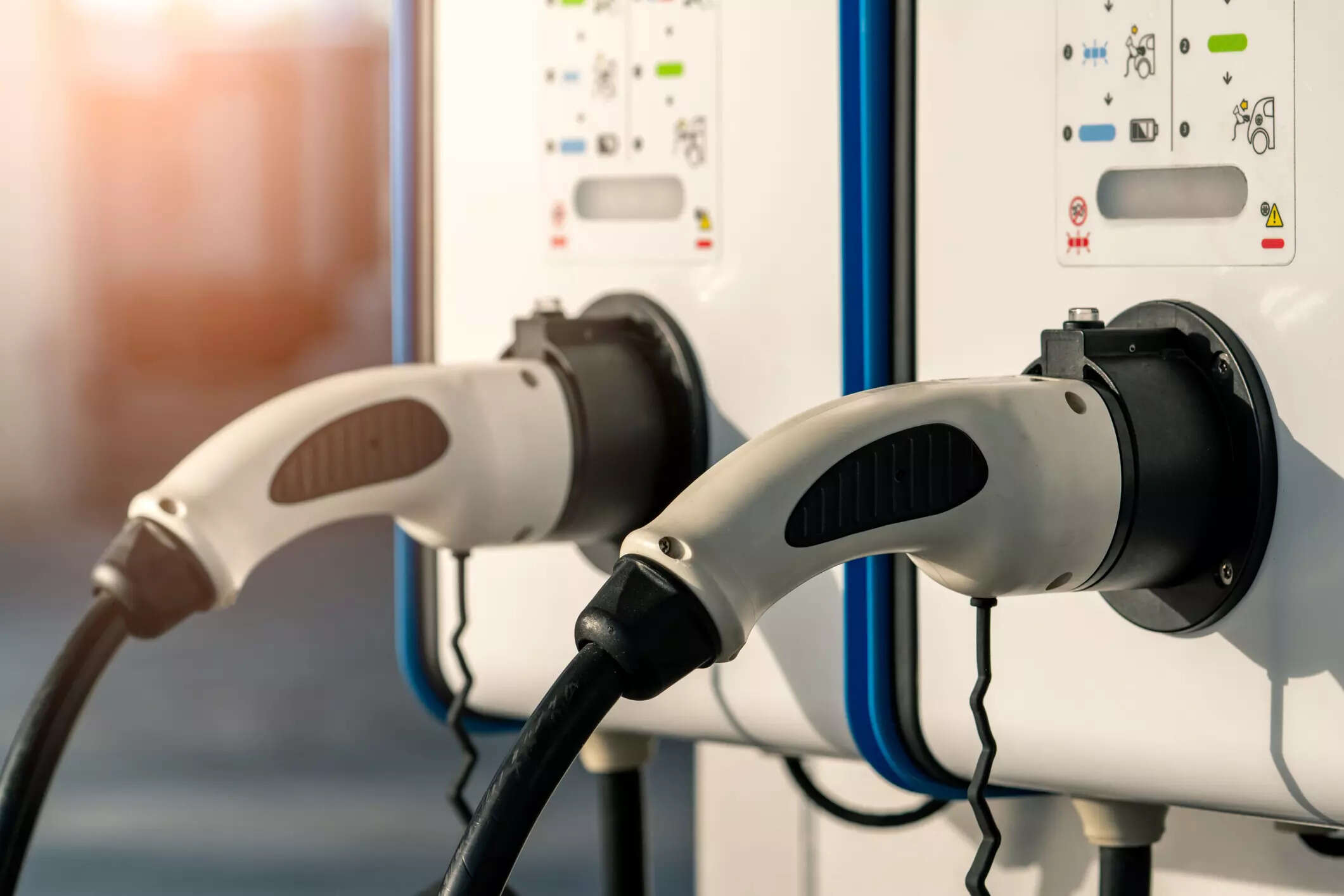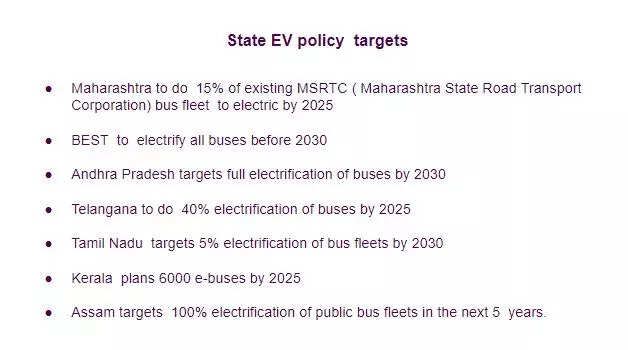
Mumbai:
India’s drive towards an electric future is being led by state governments, as large states like Maharashtra and Uttar Pradesh formulate policies on electric vehicle adoption, and various metro cities convert their public transport fleets to EVs.Amitabh Kant, CEO, Niti Aayog says that while the pace of electrification of two and three-wheelers has been fast, it is electric buses that are the real “low-hanging fruit” of the transport market in India. “States play a very pro-active role in the procurement of e-buses,” he explained.
The second phase of Faster Adoption and Manufacturing of Hybrid and Electric Vehicles ( FAME 2) which proposed E-bus aggregation for 4-million plus cities(Mumbai, Delhi, Bengaluru, Hyderabad, Ahmedabad, Chennai, Kolkata, Surat, and Pune) has been pursued actively , added Kant.
A global tender for 5,585 e-buses (including 135 double deckers) for these nine cities was rolled out recently – setting a record for such a tender. With this initiative of the central government, and total cost of ownership (TCO) parity being achieved by EV buses in comparison to ICE buses, it would be financially prudent for the states to go for e-buses, say EV experts.
“Twenty-seven states have moved forward in formulating their EV policies, and 18 states/ UTs have already notified their EV policy,” said Kant, whose Niti Aayog is working with states and UTs to develop their EV policies.
Some state governments such as Maharashtra and Goa are mandating that going forward, the existing fleet of government vehicles should be converted to electric. Some central government departments are being advised to procure EVs either through lease option (through EESL) or direct purchases, said Shailesh Chandra, MD, passenger vehicles and electric mobility, Tata Motors which has supplied close to 200 PVs to government agencies.
“We have seen 2,650 new electric bus tenders. The 3-wheelers are at a tipping point of transition to electric and sales have grown year on year with more than 30% EV adoption in recent months”, said Mahesh Babu, director & CEO, Switch Mobility, the EV subsidiary of Ashok Leyland. “With EV operating cost lower than diesel in buses, it makes sense for all city buses to be converted to electric soon. Having said that, financing and subsidy support from the government needs continuous support for these projects”, said Babu.
Electric vehicle share to total vehicle sales in CY 2020 and CY 2021
| Vehicle type | CY 2020 % share | CY 2021 % share |
| Three wheelers | 24.3 | 42.26 |
| Buses | 0.29 | 11.28 |
| Cars | 0.18 | 0.45 |
| Two wheelers | 0.22 | 1.17 |
Source: CEEW- Centre for Energy finance
Within four-wheelers, urban mass transportation has been gaining momentum, with several state transport undertakings (STUs) adding electric buses to their fleet, said Rohit Srivastava, VP, product line – buses, Tata Motors, which has already supplied 615 electric buses to five states, including over 400 to Ahmedabad Janmarg Limited and BEST in Mumbai. The company also has a strong order pipeline of 200 electric buses from Jaipur City Transport Services and Delhi Transport Corporation.
Mahua Acharya , MD and CEO of Convergence Energy Services, which recently launched a mega Rs 5,450 crore tender for procuring electric buses for five cities, says the state transport undertakings have the intent so the adoption to electric is also likely to pick up soon.
Manufacturers like Tata Motors, Ashok Leyland, Mahindra, JBM Auto have started supplying electric buses , three-wheelers, passenger vehicles through the orders won from the various departments.
An analysis by CEEW- Centre for Energy Finance, a public policy think tank , suggests that over 350 companies sell electric three-wheelers in India. In comparison there are less than 40 companies selling two-wheelers, and less than 10 manufacturers each for four-wheelers and e-buses. “The share of sales in other categories can also increase if there are more companies selling electric vehicles, greater number of vehicle models and spread of dealerships across the country,” said Rishabh Jain, programme lead, CEEW- CEF.
Also Read:
















